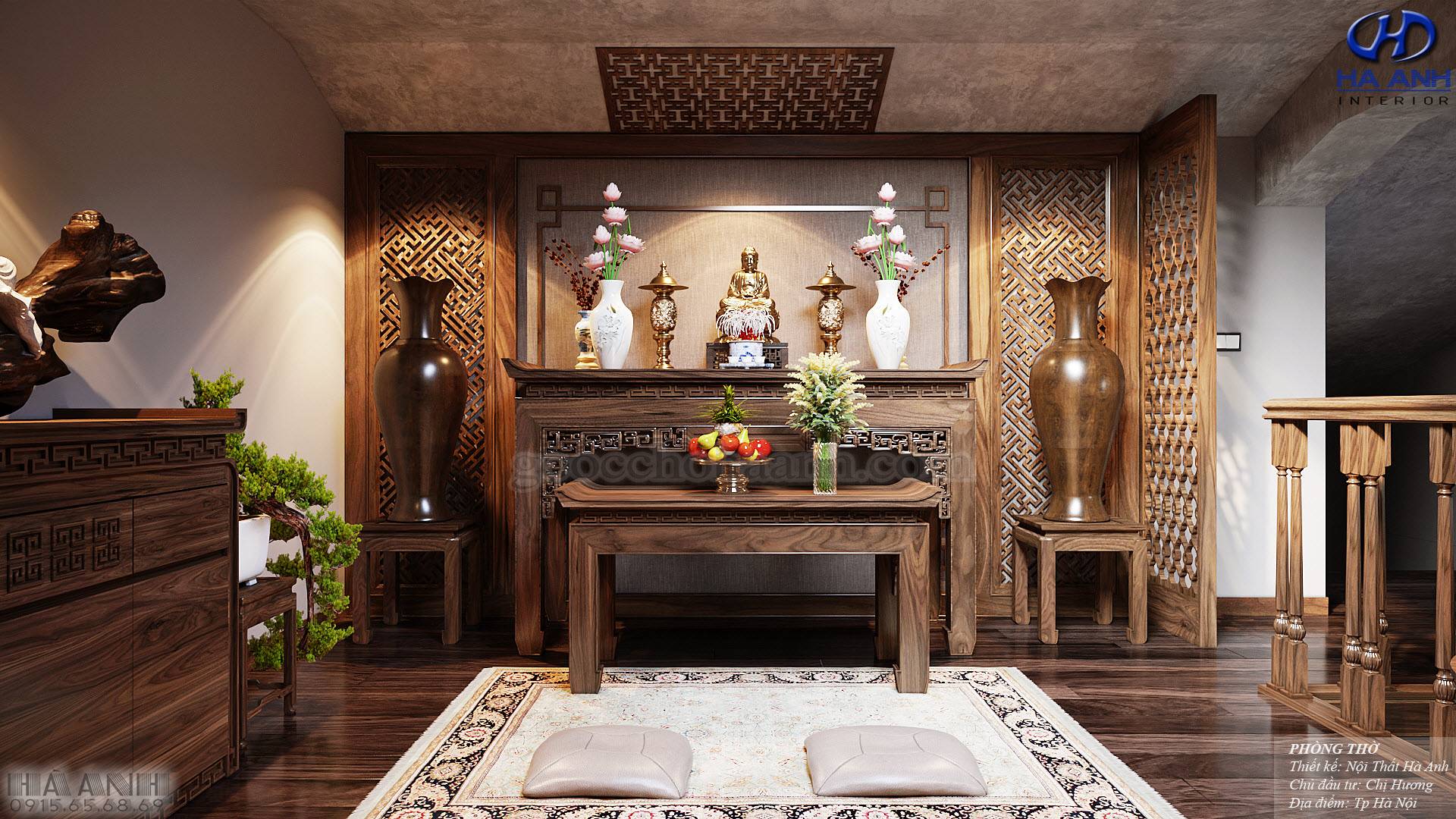Religious altars are not only aesthetically pleasing but also hold spiritual and feng shui significance. Therefore, homeowners must carefully consider and examine their options before purchasing religious altars.
Placing the altar in the wrong location can greatly affect the homeowner.
Ancestors believed that one could determine a homeowner’s sincerity by looking at their family altar. This sincerity is not measured by the height of the offering or the amount of votive paper money but by the location and arrangement of the altar, ensuring it is appropriate, dignified, and clean.
According to feng shui, if the altar is not set up properly and the location and arrangement of the altar items are inappropriate, it will negatively affect the homeowner’s luck and fortune.
Whether in a traditional or modern architectural space, the altar must always be placed in a high, well-ventilated area, undisturbed by other living spaces during worship. This demonstrates the descendants’ reverence and respect for their ancestors.
For a multi-story home, the top floor is the most suitable location for an altar room. It not only brings solemnity, privacy, and tranquility but also convenience for outdoor worship and burning votive paper outdoors.

If there is no separate altar room, as in the case of a mini-apartment or small room, it can be placed in the living room, but not in the bedroom, dining room, or kitchen. Placing the altar on the first floor is also acceptable, provided that the upper floor does not have a bed or bathroom, as this would diminish the solemnity of this sacred space.
Ritually, the altar should be placed in the highest and most dignified area. From a feng shui perspective, the altar should also ensure vibrant energy, meaning it should be well-ventilated and spacious. It is best to consider the altar’s location at the beginning of the house design to ensure its appropriateness. In an apartment, the altar must remain well-ventilated and discreet, with a form consistent with the apartment’s space.
Additionally, consider arranging the altar to facilitate daily activities without obstructing movement or compromising the house’s aesthetics. Avoid choosing an altar that is disproportionately large for the space, as it will impact the living area.
More details about the altar
1. Altar Placement
The altar should be placed in the highest and most serene area of the house, typically the top floor.
2. Taboos
Avoid placing the altar directly facing the entrance, passageway, or near the bathroom or shower. Instead, place it in a clean, well-ventilated area, and consider adding greenery to enhance the vitality of the space.
3. Altar Items
- Incense Bowl: Used for burning incense and is the focal point of the altar.
- Offering Tray: Holds fruits, cakes, and other offerings. Alcohol Jug: Used for offerings during ceremonies.
- Flower Vase: For fresh flowers, symbolizing purity.
- Oil Lamp and Candle Stand: Symbolizing spiritual light.
4. Wall-Mounted Altar
A popular choice for small spaces, wall-mounted altars save space without compromising functionality.
5. Altar Styles
- Traditional Altar: Usually made of wood with intricate carvings, columns, and a roof.
- Modern Altar: Simple and elegant, made of wood or other materials.
Note: When choosing an altar, select one that suits the size and style of your living space. Consult a feng shui expert for guidance on the direction and location of the altar.
This article is for reference only and is not intended to be conclusive.






























